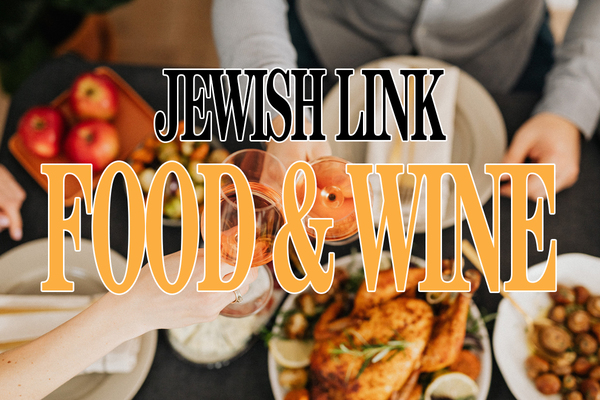When I started to keep kosher, I knew about the main kosher symbols in the U.S. There was the OU, OK, Kof-K, and a few others. There were also regional symbols, but I did not come across them too often. Some, like a plain K, were not reliable because the company making the food certified its own kashruth. It didn’t necessarily mean the food was not kosher, but the community understood that independent, third-party certification was a greater guarantee than the claims made by the manufacturer. Others were not reliable because the standards were not up to par with expectations.
Today’s consumers look for many things when they buy products, whether it is food, household cleaners, paints, appliances, or other goods. We want to buy products that reflect our values. Not just compliance with obvious halakha (like meeting minimal kashruth standards), but values like is the product safe? Is it durable? Does it cause harm to the environment through its use or disposal? Was it made in a way that pollutes or destroys the environment? Are the workers exploited or paid a fair wage? Were animals treated well? These are all Torah values, and our purchases can and should support those businesses that share our values (and conversely, we should not be complicit in others violations of those values or halakhot).
No one can possibly examine each and every product to answer questions like these, yet consumers want to know they are not compromising personal or Torah values and ethics in the process. And so,
• Avoid self-serving claims by companies promoting their own products.
• Know what each symbol means and what the standards are.
• Know which hechsherim are reliable and reflect the values you want when shopping for green, and who stands behind them.
Just like the kosher world, there are many symbols attesting to green products. I will try to help make sense of the standards and symbols in order to help you make better choices when shopping for your home, family, and business.
Let’s start with food, since we are already using kashruth as an analogy. Once we determine that a food is kosher, what does it mean to add sustainability to the mix?
• Agricultural practices that do not deplete nutrients from soils and do not pollute waterways.
• Avoiding or minimizing chemical pesticides and herbicides that leave residues, and can harm beneficial wildlife.
• Minimizing transportation and storage, since both degrade the nutritional value of many foods and add to the energy footprint (which creates pollution and adds to greenhouse gases responsible for climate change).
• Supporting local family farmers that grow diverse crops, rather than agricultural conglomerates that grow monocultures that reduce bio-diversity and require more chemicals
• Reduce excessive and unnecessary packaging.
• Ethical practices for labor, animals, and business practices.
Here are some signals that indicate you are being misled by clever marketers or buying wasteful products (a practice called “greenwashing”):
Labels that say “natural,” “pure,” “better for the environment,” “green,” or “sustainably farmed,” without other proof. Lots of things are natural, including arsenic, but you probably don’t want it in your food.
Hormone-free and Cage-Free poultry. All poultry is, by law, hormone free; “cage-Free,” applies only to eggs, not chickens raised for meat. This is designed to mislead you into thinking that a particular brand is better when it is not true.
Terms like “free-range,” “cage-free,” or “pastured,” may not mean what you think they mean, and may not be verified. Terms like “pastured” are not regulated, so it has no legal meaning. It does not guarantee an animal ever went outdoors.
A green logo that is used only on one brand is like a plain K—it may or may not be meaningful.
Excessive packaging, i.e., fresh fruits wrapped in plastic or on styrofoam trays; small products packed in big boxes.
In general, foods that are organic and/or produced locally (within several hundred miles) are environmentally preferable. Products with minimal, compact or no packaging are better for the environment, and will likely save you money. After all, you pay for the materials and labor to package the food. Other sustainable factors, humane practices, fair labor standards, and business ethics, are harder to determine without third-party certification.
While not exhaustive, the following lists some of the most common and reliable eco-labels. Most are independent with no conflicts of interest and high, transparent standards. It is frustrating to report that few kosher meat and dairy products, even those that purport to follow ethical and sustainable guidelines, are third-party certified at this time. The two ethical kosher meat producers (KOL and Grow and Behold) boast higher standards than any other kosher meat purveyor, but neither can obtain the major third-party certifications on animal welfare because certification requires stunning prior to slaughter (KOL is certified as a green business). Fairway sells kosher Murray’s Chickens; while Murray’s has third-party humane certification for the raising of its birds, the kosher line is not certified because they cannot be stunned. (Meat will be covered in more detail in a future article.)
Few kosher dairy products are made with milk from cows that are rBST-free, let alone truly pastured or organic. Neither service that certifies humane animal treatment lists any kosher dairy producer among their products. Only competition and consumer demand will likely force companies to seek certification.
Michael Rogovin is Chair of the Teaneck Environmental Commission and is accredited as a LEED® Green Associate. He consults to homeowners and businesses seeking to make their buildings, operations and lifestyle more sustainable.
By Michael Rogovin










